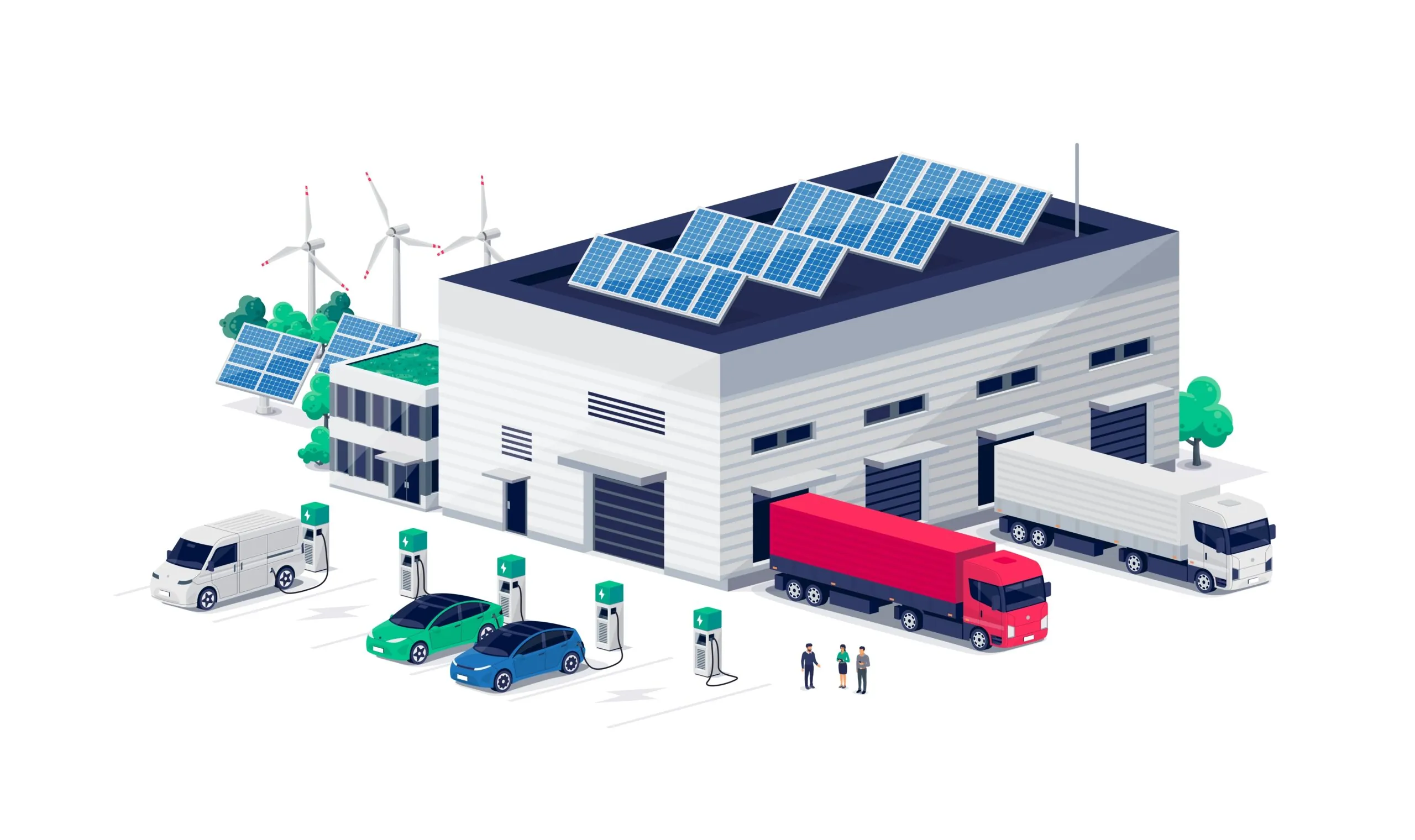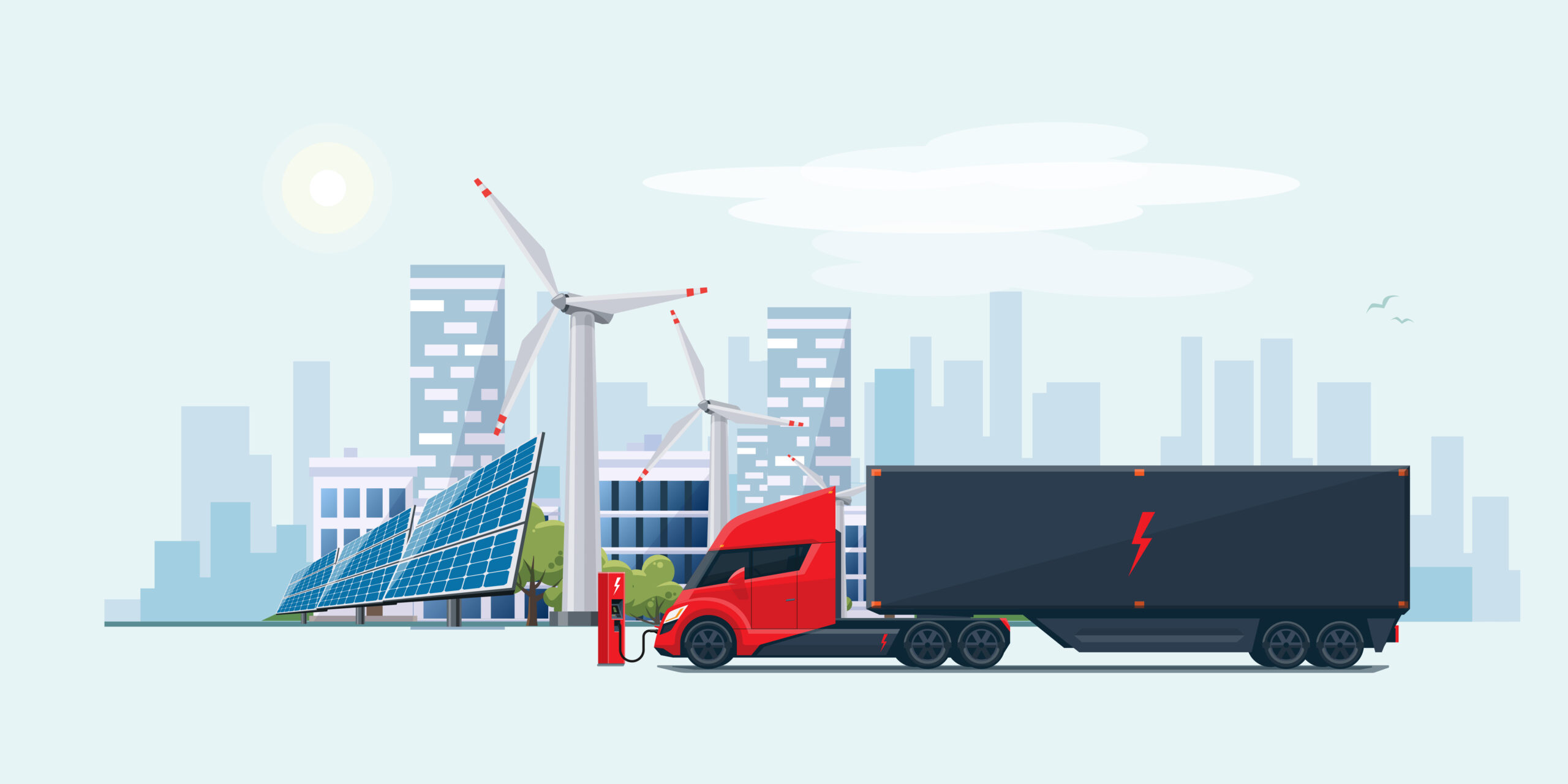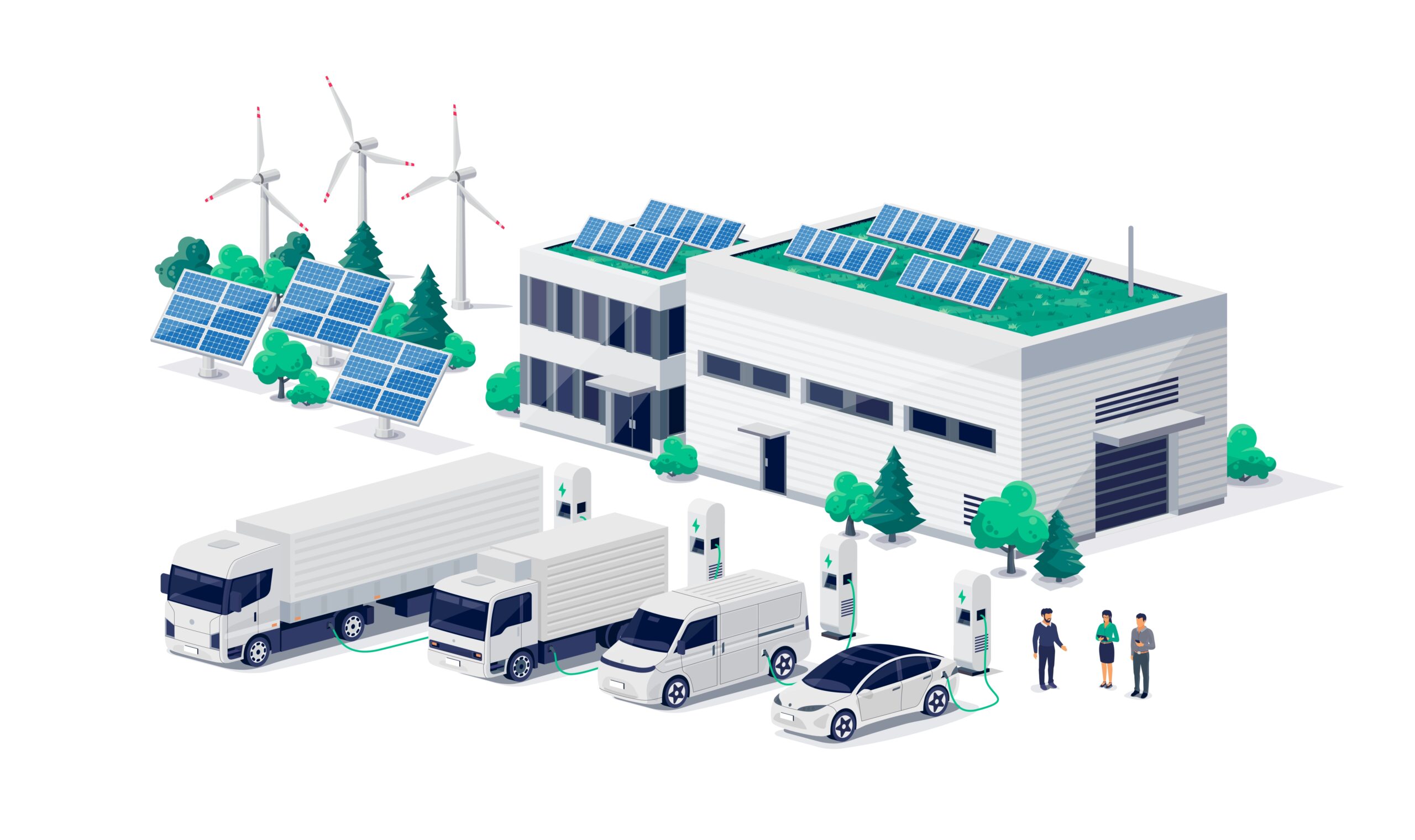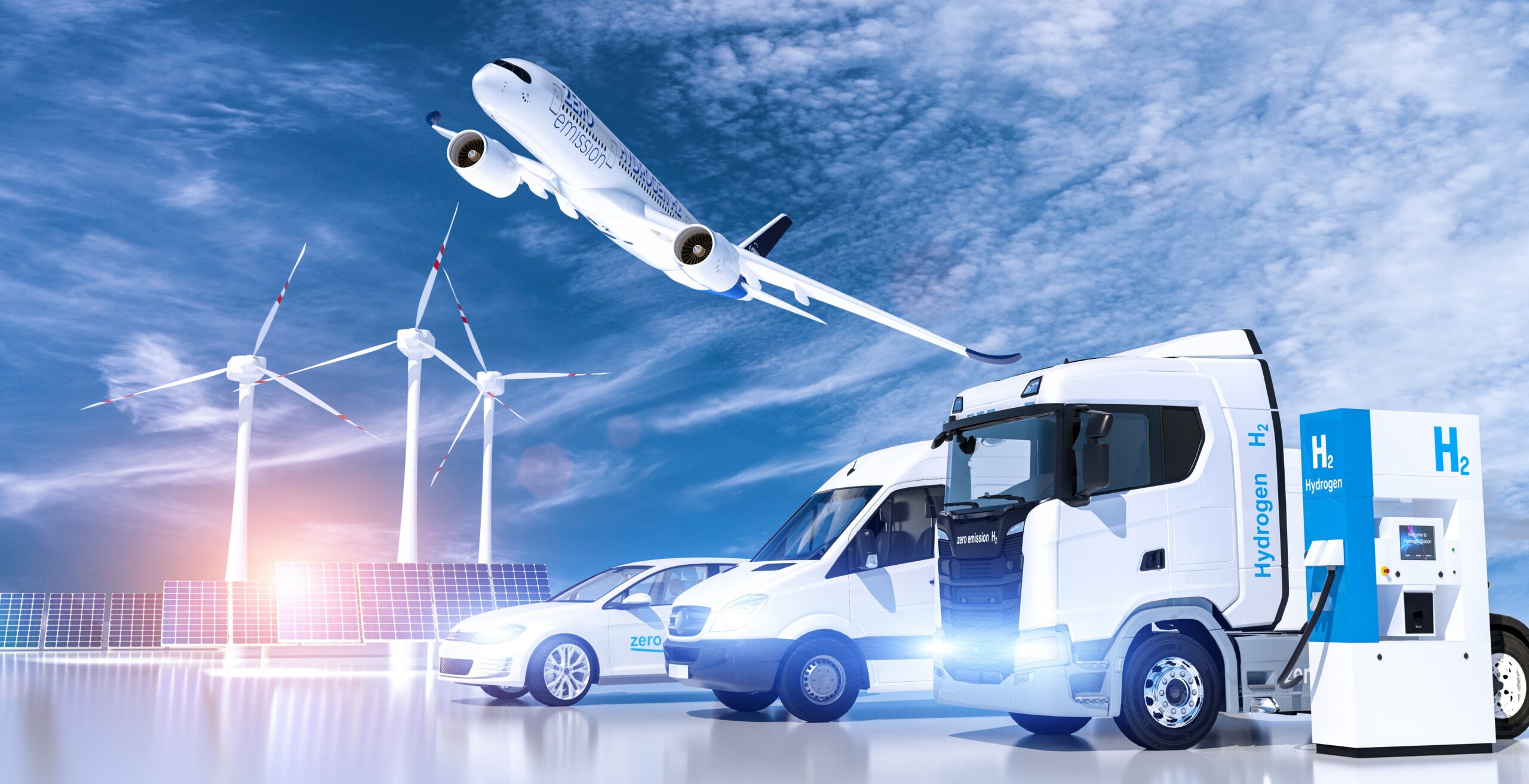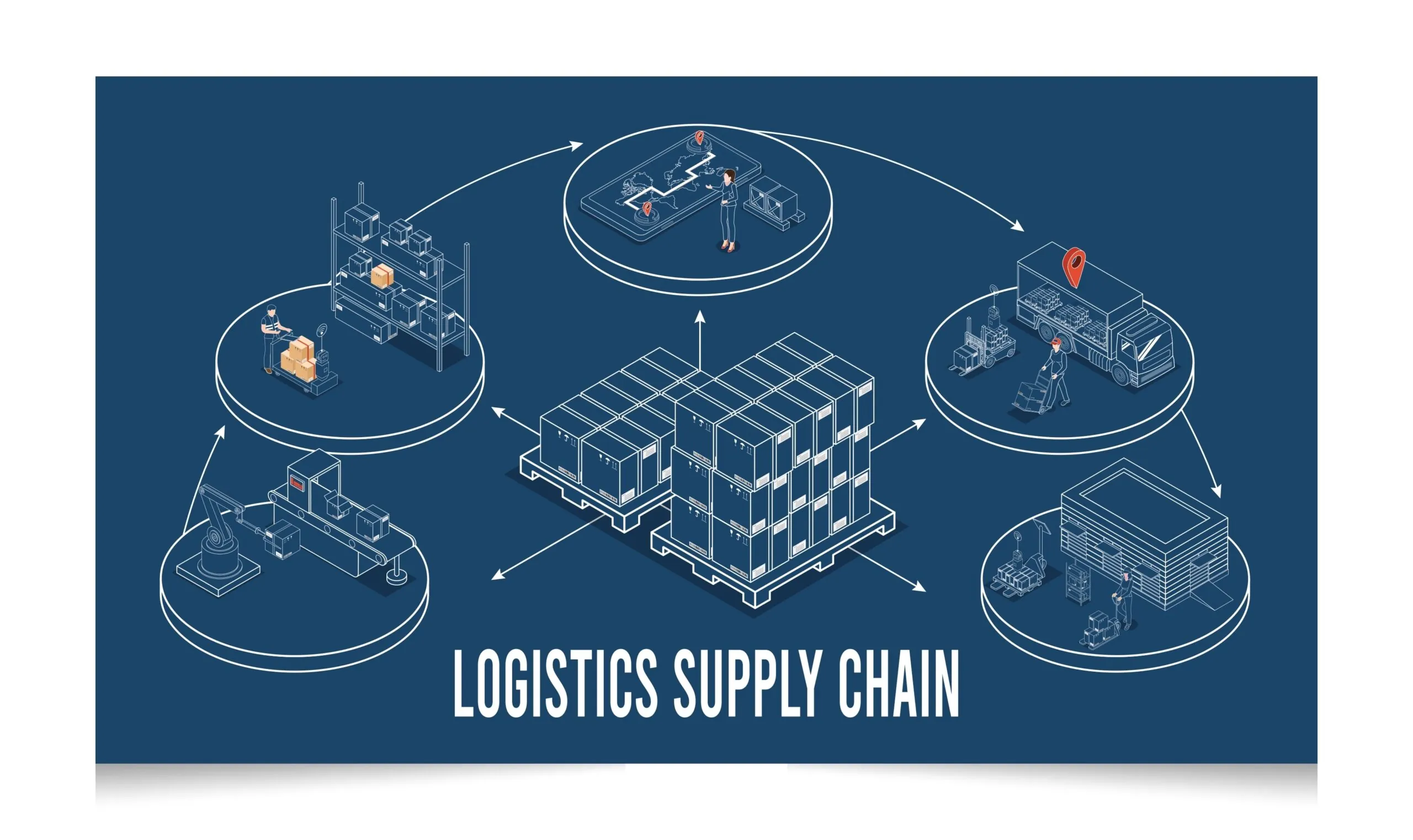
How Shipping Companies Are Going Green
Shipping companies play a vital role in transporting goods all around the world. These operations also harm the environment due to emissions and waste generated by traditional shipping methods. The good news is that shipping companies can adopt green technologies and practices to reduce their environmental footprint and contribute to a healthier planet. We will discuss different ways shipping companies can help save the planet by going green.

Going Green: Sustainable Shipping
Shipping companies can significantly reduce their environmental impact by embracing renewable energy, improving energy efficiency, optimizing route planning, investing in green technologies, promoting sustainable packaging, and collaborating with stakeholders. Taking these steps contributes to a more sustainable shipping industry, helping to save the planet for future generations.
We provide competitive freight shipping prices and an all-inclusive, easy-to-use shipping experience for our customers. Exceeding our customers’ expectations results in thousands of satisfied customer reviews and repeat business. We believe in the power of our customer relationships. Check out FreightCenter reviews from real customers, and learn what they have to say about their freight shipping experience!
- 2021 Food Logistics’ Top Green Providers
- 2021 & 2018 Supply & Demand Chain Executives’ Pros to Know: Matthew Brosious
- 2020 & 2019 Top Food Logistics’ 3PL & Cold Storage Provider Award
- 2020 & 2019 Business Observer’s Top 500 Companies on the Gulf Coast
- 2020 & 2017 SmartWay® Transport Partner
- 2020 & 2017 Food Logistics’ Champions: Rock Stars of the Supply Chain
- 2020 Best of Palm Harbor Awards for Local Businesses
- 2017 Green Supply Chain Award from Supply & Demand Chain Executive
- 2017 Tampa Bay Business Journal Heroes at Work
- 2016, 2015, & 2012 Food Logistics Top 100 Software and Technology Providers
- 2013 Tampa Bay Business 100 by Tampa Bay Business Journal
- 2013 Top 100 Great Supply Chain Partners by SupplyChainBrain
- 2012 TIA Samaritan Award Honorable Mention
- 2012, 2011 & 2010 TBBJ Fast 50 Recipient
- 2013, 2011, & 2010 Diversity Business Top Businesses
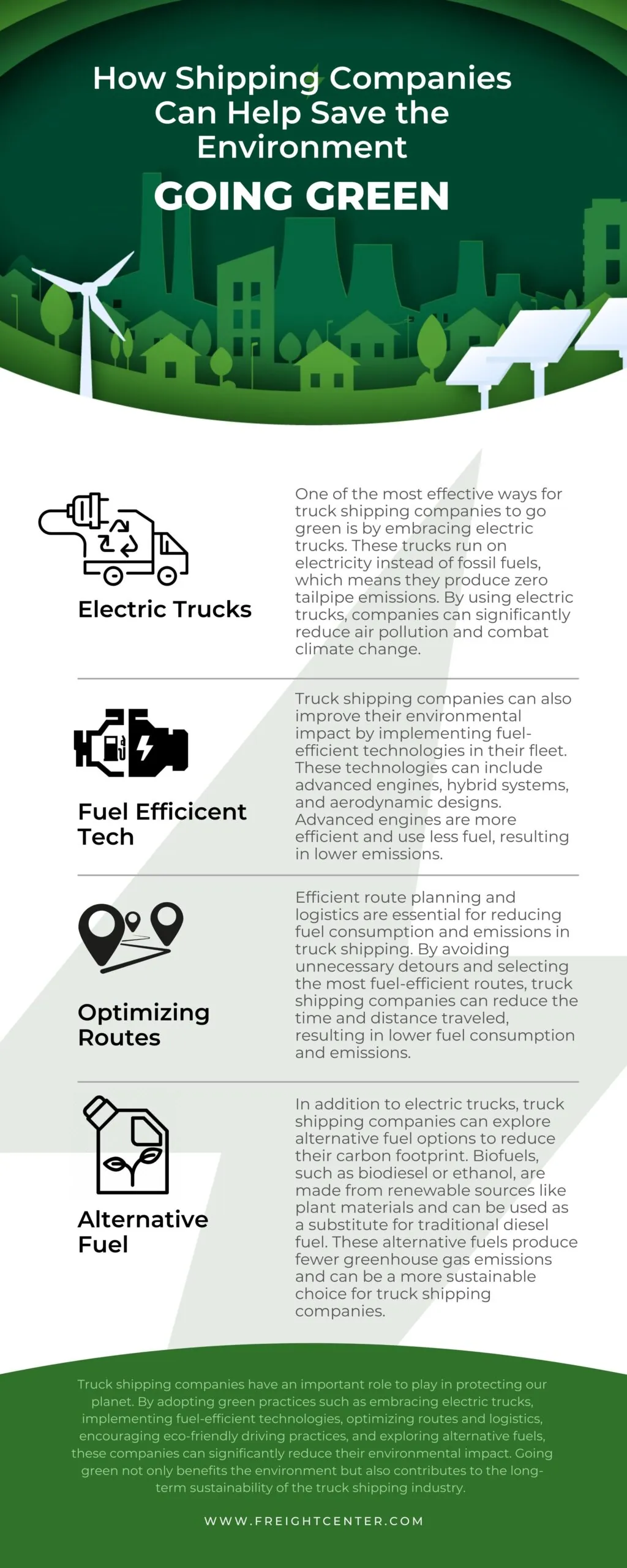
Using Electric Trucks
One of the most effective ways for shipping companies to go green is by embracing electric trucks. These trucks run on electricity instead of fossil fuels, producing zero emissions. Companies can significantly reduce air pollution and combat climate change by using electric trucks to save the planet. Electric trucks are becoming more advanced and have longer driving ranges, making them a viable and sustainable shipping option for green freight.
Implementing Fuel-efficient Technologies
Shipping companies can also improve their environmental impact and achieve sustainable shipping by implementing fuel-efficient green technologies in their fleet. Green technologies can include advanced engines, hybrid systems, and aerodynamic designs. Advanced engines are more efficient and use less fuel, reducing emissions. Hybrid systems combine traditional fuel engines with electric components, reducing fuel consumption and emissions. Aerodynamic designs make trucks more streamlined, reducing drag and improving fuel efficiency for sustainable shipping.
Optimizing Routes and Logistics
Efficient route planning and logistics are essential for reducing fuel consumption and emissions in truck shipping. Companies can use advanced AI, technology and GPS systems to analyze and optimize delivery routes. Shipping companies can minimize travel time and distance by avoiding unnecessary detours and selecting the most fuel-efficient routes. Sustainable shipping starts with lower fuel consumption and emissions.
Encouraging Eco-friendly Driving Practices
Shipping companies can promote eco-friendly driving practices among their drivers. These practices include avoiding aggressive acceleration and braking, maintaining optimal tire pressure, and reducing idling time. Aggressive driving and underinflated tires increase fuel consumption and emissions. By promoting eco-friendly driving practices, shipping companies can significantly reduce their environmental impact and help save the planet.
Using Alternative Fuels
In addition to electric trucks, shipping companies explore alternative fuel options to reduce their carbon footprint. Biofuels, like biodiesel or ethanol, are made from renewable sources like plant materials and can be used as a substitute for traditional diesel fuel. These alternative fuels produce fewer greenhouse gas emissions and can be a more sustainable shipping choice for shipping companies and green freight.
Sustainable Shipping: 5 Ways Freight is Going Green
One of the most significant shifts in the shipping industry is the adoption of electric trucks. These vehicles run on electricity instead of traditional fossil fuels, significantly reducing greenhouse gas emissions and air pollution. Electric trucks are powered by advanced batteries and electric motors, providing a clean and efficient alternative to conventional diesel trucks. By embracing electric trucks, shipping companies can play a pivotal role in reducing carbon emissions, improving air quality and advancing sustainable shipping.
1. Transitioning to Electric Trucks Reduces Emissions
Reduction in Emissions
One of the most significant advantages of electric trucks is their ability to reduce emissions drastically. Unlike diesel trucks that emit harmful pollutants, electric trucks produce zero tailpipe emissions. By eliminating exhaust emissions such as carbon dioxide, nitrogen oxides, and particulate matter, the transition to electric trucks helps combat air pollution. It improves air quality in communities along transportation routes. By reducing emissions, sustainable shipping plays a crucial role in mitigating climate change and saving the planet.
Contribution to Renewable Energy
Electric trucks are powered by electricity, which can be generated from renewable energy sources like solar and wind power. By charging their trucks using renewable energy, shipping companies further reduce their carbon footprint and dependency on non-renewable fossil fuels. This shift promotes the growth of renewable energy infrastructure. It contributes to the overall decarbonization of the transportation sector, leading to more sustainable shipping and a cleaner energy future to save the planet.
Energy Efficiency and Resource Conservation
Electric trucks are known for their high energy efficiency compared to conventional diesel trucks. Electric motors are more efficient in converting energy into motion, resulting in less energy waste and greater overall efficiency. This increased efficiency reduces the energy required to transport goods, resulting in lower energy consumption and fewer greenhouse gas emissions. Additionally, electric trucks have regenerative braking systems that convert kinetic energy into electricity, further improving their energy efficiency and conserving resources.
Noise Pollution Reduction
Conventional diesel trucks are notorious for their noise pollution, especially in urban areas. Electric trucks operate much quieter due to their electric motors, reducing noise pollution along transportation routes. This noise reduction positively impacts the quality of life for truck drivers and communities near roadways. Quieter streets provide a more peaceful environment, benefiting residents and wildlife alike.
Encouraging Technological Advancements
Shipping companies’ transition to electric trucks is driving technological advancements in the transportation industry. As the demand for electric trucks increases, manufacturers invest in research and development to improve battery technology, charging infrastructure, and vehicle range. This innovation has a cascading effect, leading to the improvement of electric vehicle technology across various sectors. The continuous advancement of electric truck technology paves the way for future developments and accelerates the transition of going green with sustainable shipping.
AI contributes to sustainable transportation practices through optimization and automation. Combining AI and transportation by analyzing data on fuel efficiency, emissions, and alternative transportation options, AI-powered Transportation Management Systems platforms help organizations make environmentally conscious decisions. Optimized routing and load planning reduce fuel consumption, greenhouse gas emissions, and overall environmental impact.
AI-powered systems can continuously monitor transportation performance metrics such as on-time delivery rates, fuel consumption, and driver behavior. By collecting and analyzing this data, AI provides real-time feedback and insights to transportation managers.
AI algorithms can also help shipping companies plan how to pack goods onto trucks or ships in the most efficient way. By optimizing the use of space, AI ensures that more items can be transported in a single trip.
AI is being used to create smarter traffic management systems. These systems can control traffic lights and adjust signal timings based on real-time data. By optimizing traffic flow, AI helps reduce congestion, which means less time spent idling in traffic and lower fuel consumption.
AI can help shipping companies find the best and most efficient routes for delivering goods. By analyzing data about traffic, weather, and other factors, AI algorithms can plan the routes that use the least fuel and produce the fewest emissions.


4. Driving Toward a Sustainable Future: Hydrogen Fuel
Shipping companies also pilot hydrogen fuel cell trucks as another renewable energy solution. These trucks use hydrogen gas to generate electricity through a chemical reaction, producing only water vapor as a byproduct. Hydrogen fuel-cell technology offers long driving ranges and rapid refueling times, making it a promising option for long-haul trucking. Although it is still in the early stages, hydrogen fuel cell trucks show great potential for a zero-emission future in the trucking industry.
Zero Emissions
Hydrogen fuel cell trucks offer a zero-emission alternative to traditional fossil fuel-powered trucks. These vehicles use hydrogen gas as their fuel, and the hydrogen reacts with oxygen in the fuel cell to produce electricity. The only byproduct of this reaction is water vapor, making hydrogen fuel cell trucks truly emissions-free. Shipping companies can significantly reduce greenhouse gas emissions and air pollution by piloting these trucks, contributing to the fight against climate change and improving air quality.
Reduced Dependence on Fossil Fuels
Piloting hydrogen fuel cell trucks allows truck shipping companies to reduce their reliance on finite fossil fuel resources and contribute to sustainable shipping. Hydrogen is abundant and produced through electrolysis from renewable sources like wind and solar power. By shifting toward hydrogen as a fuel source, companies can reduce their carbon footprint and contribute to a more sustainable and diversified energy mix. This reduced dependence on fossil fuels helps preserve the environment and mitigates the negative impacts of their extraction and combustion.
Extended Driving Range
One advantage of hydrogen fuel cell trucks is their extended driving range compared to battery-electric vehicles. Hydrogen fuel cell trucks can travel longer distances before refueling, making them suitable for long-haul transportation and reducing the need for frequent charging or refueling stops. This extended range improves the viability and flexibility of hydrogen fuel cell trucks, making them a promising solution for shipping companies to achieve sustainable operations on a larger scale.
Rapid Refueling Times
Hydrogen fuel cell trucks offer another advantage with their rapid refueling times. Unlike battery-electric vehicles that require hours to recharge, hydrogen fuel cell trucks can be refueled in minutes, similar to a conventional diesel truck. This quick refueling capability ensures minimal driver downtime and allows for efficient and uninterrupted transportation operations. Rapid refueling supports the industry’s demanding schedules and contributes to the viability of hydrogen fuel cell trucks as a practical and efficient solution.
Driving Technological Innovation
Through piloting hydrogen fuel cell trucks, shipping companies contribute to technological innovation and advancement in the transportation sector. These pilot programs allow for testing, gathering data, and identifying areas for improvement in hydrogen fuel cell technology. Feedback from these trials helps manufacturers and researchers refine the technology, enhance vehicle performance, and increase the efficiency of hydrogen production and distribution. This collaborative effort drives progress in the hydrogen fuel cell industry, benefiting shipping companies and other sectors exploring this technology.
5. Collaborative Innovation for Renewable Energy
Shipping companies collaborate with researchers, technology developers, and energy providers to drive innovation in renewable energy solutions. These collaborations foster the development of more efficient electric and alternative fuel technologies. By working together, stakeholders can share knowledge, resources, and insights to overcome challenges and accelerate the adoption of renewable energy in the shipping industry.
Knowledge Sharing and Best Practices
Collaboration among shipping companies promotes knowledge sharing and the exchange of best practices. Through partnerships and industry associations, companies can share their experiences, successes, and challenges related to renewable energy adoption. This knowledge-sharing environment helps accelerate the implementation of sustainable practices across the industry. By learning from one another, companies can utilize shared insights to overcome obstacles, optimize operations, and achieve greater efficiency in their renewable energy initiatives.
Driving Technological Advancements
Collaboration for renewable energy innovation enables shipping companies to drive technological advancements. By working together, companies pool resources, expertise, and research efforts. This collective approach allows for more significant investment in research and development, improving renewable energy technologies, such as solar power, wind energy, and biofuels. As shipping companies collaborate, they contribute to developing more efficient and effective renewable energy solutions, advancing the sustainability of the trucking industry as a whole.
Scaling Renewable Energy Infrastructure
Collaboration among shipping companies supports the scaling of renewable energy infrastructure. By working together, companies can collectively invest in developing and expanding renewable energy infrastructure, such as solar and wind farms and charging stations for electric trucks. This increased investment helps create a robust and reliable renewable energy infrastructure network. As renewable energy infrastructure expands, more sustainable energy sources become readily available, reducing reliance on fossil fuels and contributing to a greener planet.
Influence on Policy and Regulations
Through collaboration, shipping companies have a stronger voice in shaping policy and regulations related to renewable energy adoption. Industry associations and partnerships allow companies to collectively advocate for supportive policies and incentives that facilitate the transition to renewable energy. By influencing policy, shipping companies can create an enabling environment for renewable energy innovation, ensuring a level playing field and encouraging broader industry participation. These policy advancements promote the growth of renewable energy adoption, leading to a more sustainable transportation sector and a healthier planet.
Collective Impact and Industry Transformation
The collaborative efforts of shipping companies for renewable energy innovation create a collective impact on the industry. By working together, companies can drive widespread change and promote adopting renewable energy practices. As more companies commit to sustainable practices, the industry transforms. This transformation reduces the carbon footprint of truck shipping operations and inspires other sectors to embrace renewable energy and work towards a sustainable planet.
FreightCenter Leads The Way in Sustainable Shipping
FreightCenter is a third-party logistics company that knows how to make supply chains greener. Our powerful TMS and our extensive network of carriers and freight experts work together to make freight shipping more sustainable for the planet. FreightCenter is the leading freight transportation and logistics company. We are actively taking steps to go green and reduce our environmental impact. We recognize the importance of sustainability and are implementing various initiatives to promote environmental responsibility. We are a member of the EPA’s SmartWay program dedicated to helping companies and their supply chains be more environmentally conscious and sustainable.
Carbon Footprint Reduction
FreightCenter is committed to reducing its carbon footprint, which refers to the greenhouse gas emissions generated by our operations. We are implementing strategies to optimize shipping routes, reduce empty miles, and consolidate shipments. FreightCenter aims to decrease fuel consumption and emissions by maximizing truckload capacity and minimizing unnecessary trips, leading to a more sustainable transportation process.
Utilizing Sustainable Carriers
FreightCenter actively partners with carriers that share our commitment to sustainability. We collaborate with carriers adopting environmentally friendly practices, such as utilizing fuel-efficient vehicles and investing in emission reduction technologies. By selecting carriers with greener fleets, FreightCenter ensures that the transportation of goods is more eco-friendly.
Promoting Intermodal Transportation
Intermodal transportation involves using multiple modes of transportation, such as trucks, trains, and ships, to transport goods. FreightCenter encourages intermodal transportation whenever possible, as it offers several environmental benefits. By incorporating rail or water transport for longer distances, FreightCenter reduces the reliance on trucking, which leads to lower emissions and fuel consumption.
Implementing Technology Solutions
FreightCenter utilizes advanced technology solutions to optimize operations and reduce environmental impact. We employ transportation management systems (TMS) that help streamline shipping processes, improve route planning, and optimize load. By utilizing TMS and other innovative technologies, FreightCenter minimizes unnecessary mileage, optimizes fuel efficiency, and reduces emissions.
Recycling and Waste Reduction
In addition to transportation-related initiatives, FreightCenter emphasizes waste reduction and recycling within its facilities. We promote responsible waste management practices, including recycling paper, plastic, and other recyclable materials. By prioritizing waste reduction and recycling, FreightCenter minimizes its contribution to landfill waste and supports the circular economy.
Employee Education and Engagement
FreightCenter understands the importance of fostering a culture of environmental awareness among its employees. We provide training and education on sustainable practices, raising awareness about going green. By engaging employees and encouraging their participation in environmental initiatives, FreightCenter ensures that sustainability becomes an integral part of its corporate culture.
Continuous Improvement
FreightCenter is committed to continuous improvement in its green initiatives. We regularly review our environmental practices, set sustainability goals, and measure our progress. By actively seeking ways to enhance its green efforts, FreightCenter aims to stay at the forefront of environmental responsibility within the freight transportation industry.
FreightCenter is making significant strides toward becoming a greener company. By reducing its carbon footprint, utilizing sustainable carriers, promoting intermodal transportation, implementing technology solutions, prioritizing recycling and waste reduction, engaging employees, and emphasizing continuous improvement, FreightCenter demonstrates its commitment to environmental sustainability. These efforts contribute to a more sustainable freight transportation industry and a greener planet overall.
Green Shipping FAQs
Q. What is green freight transport?
A. Green freight transport refers to the movement of goods utilizing eco-friendly vehicles that emit low or zero emissions. This includes the use of electric, hydrogen, and other alternative fuel vehicles, as well as the implementation of efficient routing and logistics technologies. By adopting these sustainable practices, the environmental impact of transporting goods is significantly reduced.
Q. What is the environmental impact of freight shipping?
A. Freight shipping has significant environmental impacts, including air and water pollution, acoustic pollution, and oil pollution. Nitrogen oxides pollution from ships accounts for over 18%, while greenhouse gas emissions contribute about 3% of total emissions. These pollutants have detrimental effects on ecosystems and human health.
Q. What is the most environmentally friendly freight transportation?
A. Rail transport is considered the most eco-friendly freight transportation method due to its significantly lower carbon emissions compared to trucks and ships. Trains emit approximately 80% fewer carbon emissions, making them an environmentally conscious choice for delivering goods. Opting for rail transport can help reduce the ecological footprint associated with freight transportation.
Q. How can trucking be more sustainable?
A. To make trucking more sustainable, optimize fuel efficiency by filling up your tank in the morning when it’s cooler. This helps to get more gas in your tank and reduce the frequency of refueling. Additionally, avoid idling your truck and turn it off when you know you’ll be stopped for a while to save fuel. By following these practices, you can contribute to a greener and more sustainable trucking industry.
Q. What are 3 sustainable transportation methods?
A. Three sustainable transportation methods include walking, cycling, and using public transit. These eco-friendly options help minimize environmental impact and promote a healthier lifestyle. By choosing these alternatives, individuals contribute to reducing carbon emissions and congestion on the roads, creating a greener and more sustainable future.
Q. How truck drivers are going green?
A. Truck drivers are going green by adopting greener fuel alternatives such as biodiesel and electric batteries. This shift towards electricity is seen as the future of the industry, with debates ongoing about the use of conventional batteries or hydrogen fuel cells, as discussed in a New York Times article.
Q. What is green logistics in transport?
A. Green logistics in transport refers to efforts and strategies aimed at reducing the environmental impact of transportation activities. It involves measures like efficient route planning, use of eco-friendly fuels, and optimizing load capacity to minimize carbon emissions and promote sustainability in the logistics industry. By adopting green logistics practices, companies can contribute to a greener and more sustainable future.
Q. Why go green in logistics?
A. Going green in logistics has numerous benefits, including minimizing waste and streamlining operations. By integrating customer insights, inventory data, and order management into one platform, logistics companies can reduce paper waste and enhance efficiency. Additionally, implementing green strategies can significantly decrease plastic waste generated during the packaging processes.
5. Collaborative Innovation for Renewable Energy
Shipping companies collaborate with researchers, technology developers, and energy providers to drive innovation in renewable energy solutions. These collaborations foster the development of more efficient electric and alternative fuel technologies. By working together, stakeholders can share knowledge, resources, and insights to overcome challenges and accelerate the adoption of renewable energy in the shipping industry.
Knowledge Sharing and Best Practices
Collaboration among shipping companies promotes knowledge sharing and the exchange of best practices. Through partnerships and industry associations, companies can share their experiences, successes, and challenges related to renewable energy adoption. This knowledge-sharing environment helps accelerate the implementation of sustainable practices across the industry. By learning from one another, companies can utilize shared insights to overcome obstacles, optimize operations, and achieve greater efficiency in their renewable energy initiatives.
Driving Technological Advancements
Collaboration for renewable energy innovation enables shipping companies to drive technological advancements. By working together, companies pool resources, expertise, and research efforts. This collective approach allows for more significant investment in research and development, improving renewable energy technologies, such as solar power, wind energy, and biofuels. As shipping companies collaborate, they contribute to developing more efficient and effective renewable energy solutions, advancing the sustainability of the trucking industry as a whole.
Scaling Renewable Energy Infrastructure
Collaboration among shipping companies supports the scaling of renewable energy infrastructure. By working together, companies can collectively invest in developing and expanding renewable energy infrastructure, such as solar and wind farms and charging stations for electric trucks. This increased investment helps create a robust and reliable renewable energy infrastructure network. As renewable energy infrastructure expands, more sustainable energy sources become readily available, reducing reliance on fossil fuels and contributing to a greener planet.
Influence on Policy and Regulations
Through collaboration, shipping companies have a stronger voice in shaping policy and regulations related to renewable energy adoption. Industry associations and partnerships allow companies to collectively advocate for supportive policies and incentives that facilitate the transition to renewable energy. By influencing policy, shipping companies can create an enabling environment for renewable energy innovation, ensuring a level playing field and encouraging broader industry participation. These policy advancements promote the growth of renewable energy adoption, leading to a more sustainable transportation sector and a healthier planet.
Collective Impact and Industry Transformation
The collaborative efforts of shipping companies for renewable energy innovation create a collective impact on the industry. By working together, companies can drive widespread change and promote adopting renewable energy practices. As more companies commit to sustainable practices, the industry transforms. This transformation reduces the carbon footprint of truck shipping operations and inspires other sectors to embrace renewable energy and work towards a sustainable planet.
FreightCenter Leads The Way in Sustainable Shipping
FreightCenter is a third-party logistics company that knows how to make supply chains greener. Our powerful TMS and our extensive network of carriers and freight experts work together to make freight shipping more sustainable for the planet. FreightCenter is the leading freight transportation and logistics company. We are actively taking steps to go green and reduce our environmental impact. We recognize the importance of sustainability and are implementing various initiatives to promote environmental responsibility. We are a member of the EPA’s SmartWay program dedicated to helping companies and their supply chains be more environmentally conscious and sustainable.
Carbon Footprint Reduction
FreightCenter is committed to reducing its carbon footprint, which refers to the greenhouse gas emissions generated by our operations. We are implementing strategies to optimize shipping routes, reduce empty miles, and consolidate shipments. FreightCenter aims to decrease fuel consumption and emissions by maximizing truckload capacity and minimizing unnecessary trips, leading to a more sustainable transportation process.
Utilizing Sustainable Carriers
FreightCenter actively partners with carriers that share our commitment to sustainability. We collaborate with carriers adopting environmentally friendly practices, such as utilizing fuel-efficient vehicles and investing in emission reduction technologies. By selecting carriers with greener fleets, FreightCenter ensures that the transportation of goods is more eco-friendly.
Promoting Intermodal Transportation
Intermodal transportation involves using multiple modes of transportation, such as trucks, trains, and ships, to transport goods. FreightCenter encourages intermodal transportation whenever possible, as it offers several environmental benefits. By incorporating rail or water transport for longer distances, FreightCenter reduces the reliance on trucking, which leads to lower emissions and fuel consumption.
Implementing Technology Solutions
FreightCenter utilizes advanced technology solutions to optimize operations and reduce environmental impact. We employ transportation management systems (TMS) that help streamline shipping processes, improve route planning, and optimize load. By utilizing TMS and other innovative technologies, FreightCenter minimizes unnecessary mileage, optimizes fuel efficiency, and reduces emissions.
Recycling and Waste Reduction
In addition to transportation-related initiatives, FreightCenter emphasizes waste reduction and recycling within its facilities. We promote responsible waste management practices, including recycling paper, plastic, and other recyclable materials. By prioritizing waste reduction and recycling, FreightCenter minimizes its contribution to landfill waste and supports the circular economy.
Employee Education and Engagement
FreightCenter understands the importance of fostering a culture of environmental awareness among its employees. We provide training and education on sustainable practices, raising awareness about going green. By engaging employees and encouraging their participation in environmental initiatives, FreightCenter ensures that sustainability becomes an integral part of its corporate culture.
Continuous Improvement
FreightCenter is committed to continuous improvement in its green initiatives. We regularly review our environmental practices, set sustainability goals, and measure our progress. By actively seeking ways to enhance its green efforts, FreightCenter aims to stay at the forefront of environmental responsibility within the freight transportation industry.
FreightCenter is making significant strides toward becoming a greener company. By reducing its carbon footprint, utilizing sustainable carriers, promoting intermodal transportation, implementing technology solutions, prioritizing recycling and waste reduction, engaging employees, and emphasizing continuous improvement, FreightCenter demonstrates its commitment to environmental sustainability. These efforts contribute to a more sustainable freight transportation industry and a greener planet overall.
Green Shipping FAQs
Q. What is green freight transport?
Green freight transport refers to the movement of goods utilizing eco-friendly vehicles that emit low or zero emissions. This includes the use of electric, hydrogen, and other alternative fuel vehicles, as well as the implementation of efficient routing and logistics technologies. By adopting these sustainable practices, the environmental impact of transporting goods is significantly reduced.
Q. What is the environmental impact of freight shipping?
Freight shipping has significant environmental impacts, including air and water pollution, acoustic pollution, and oil pollution. Nitrogen oxides pollution from ships accounts for over 18%, while greenhouse gas emissions contribute about 3% of total emissions. These pollutants have detrimental effects on ecosystems and human health.
Q. What is the most environmentally friendly freight transportation?
Rail transport is considered the most eco-friendly freight transportation method due to its significantly lower carbon emissions compared to trucks and ships. Trains emit approximately 80% fewer carbon emissions, making them an environmentally conscious choice for delivering goods. Opting for rail transport can help reduce the ecological footprint associated with freight transportation.
Q. How can trucking be more sustainable?
To make trucking more sustainable, optimize fuel efficiency by filling up your tank in the morning when it’s cooler. This helps to get more gas in your tank and reduce the frequency of refueling. Additionally, avoid idling your truck and turn it off when you know you’ll be stopped for a while to save fuel. By following these practices, you can contribute to a greener and more sustainable trucking industry.
Q. What are 3 sustainable transportation methods?
Three sustainable transportation methods include walking, cycling, and using public transit. These eco-friendly options help minimize environmental impact and promote a healthier lifestyle. By choosing these alternatives, individuals contribute to reducing carbon emissions and congestion on the roads, creating a greener and more sustainable future.
Q. How truck drivers are going green?
Truck drivers are going green by adopting greener fuel alternatives such as biodiesel and electric batteries. This shift towards electricity is seen as the future of the industry, with debates ongoing about the use of conventional batteries or hydrogen fuel cells, as discussed in a New York Times article.
Q. What is green logistics in transport?
Green logistics in transport refers to efforts and strategies aimed at reducing the environmental impact of transportation activities. It involves measures like efficient route planning, use of eco-friendly fuels, and optimizing load capacity to minimize carbon emissions and promote sustainability in the logistics industry. By adopting green logistics practices, companies can contribute to a greener and more sustainable future.
Q. Why go green in logistics?
Going green in logistics has numerous benefits, including minimizing waste and streamlining operations. By integrating customer insights, inventory data, and order management into one platform, logistics companies can reduce paper waste and enhance efficiency. Additionally, implementing green strategies can significantly decrease plastic waste generated during the packaging processes.
